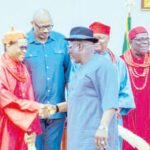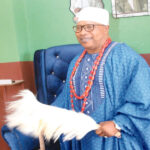The Education for All Cluster, an educational drive supported by USAID and Palladium, held a roundtable forum with the media to create broad awareness on inclusive education and education accountability issues in Sokoto State.
The project is tagged “USAID-Strengthening Civic Advocacy and Local Engagement (SCALE)” and is implemented by six nongovernmental organisations known as the Education for All Cluster.
In a presentation, Hajia Hadiza Ibrahim, one of the cluster leaders, described media practitioners as key players in sensitising the public and linking the government and non-governmental actors to ensure an inclusive education system.
Ibrahim solicited the support and cooperation of journalists in their crucial activities to ensure the right implementation of the inclusive system and gender policy in the state.
She explained that several advocacy visits had been conducted by the cluster to relevant stakeholders in order to attract attention and support.
According to her, the state government had signed into law gender policy and disability discrimination laws in the state, which serve as the bedrock for the implementation of inclusive education.
She explained that the law recently became a significant milestone in improving the lives of people living with disabilities in the state.
“The law enshrined provisions for ramps to ensure easy access in public infrastructure, including classrooms, toilets, and other structures in our schools; provided braille for blind students; and provided other relevant educational materials,” she said.
In another presentation, Mr Oluwo Claude underscored the importance of media partnerships in ensuring the success of the project and charged journalists to always adhere to professional practices and project guidelines.
Claude said that all people are equal, irrespective of ethnicity or religious differences, stressing that physically challenged people possess the potential to live as normal individuals.
He emphasised that the inclusive education policy entails providing an equal playing field for citizens to access education at different levels without discrimination based on disability status.
He discussed various categories of educational systems, from segregation, integration, and inclusion to exclusion, practiced in different countries, enumerating the advantages and disadvantages, as well as how the inclusive system needs to be prioritised.
ALSO READ THESE TOP STORIES FROM NIGERIAN TRIBUNE






